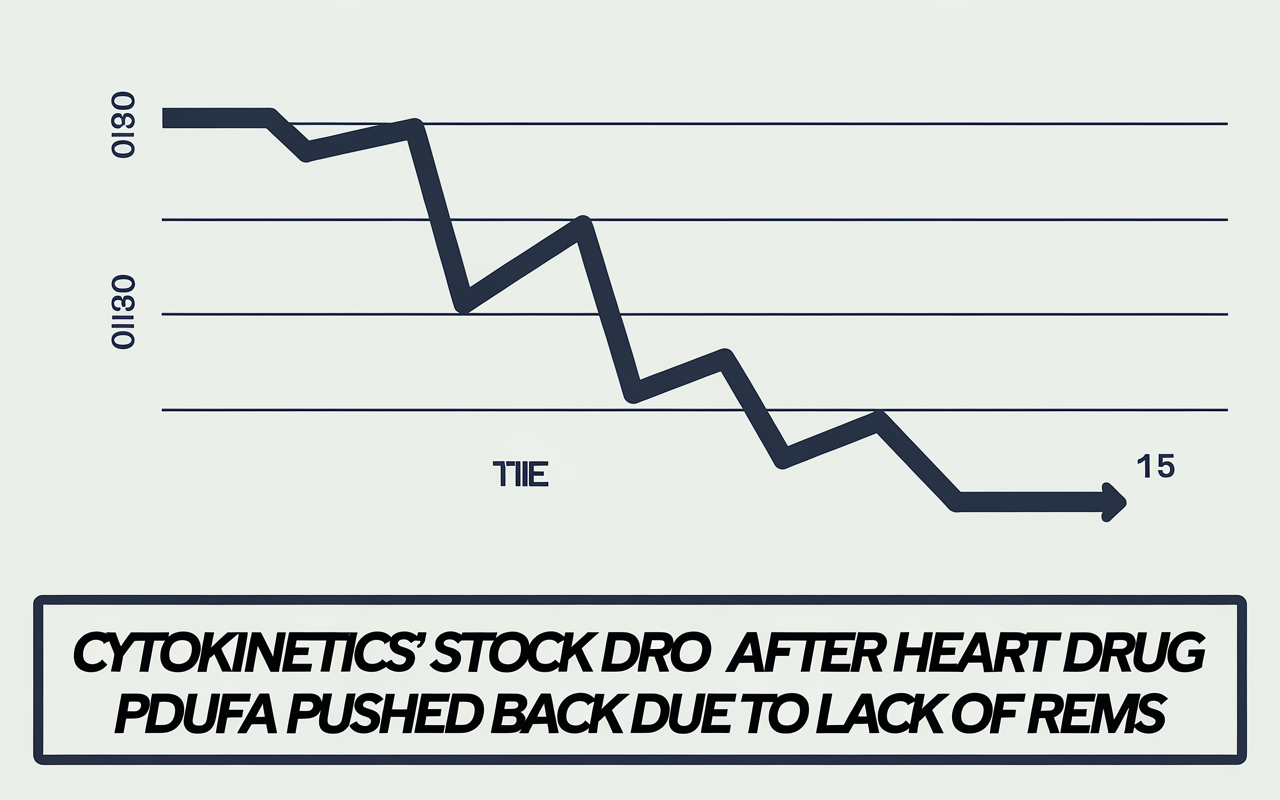Welcome BioPharmaPulse Readers
Innovation is the heartbeat of our industry, and today we're exploring some groundbreaking developments that are shaping the future of biopharmaceuticals. Let's embark on this educational journey together!
What's in this issue:
-
🔬 Discover the UK's new £1B cancer research hub set to transform oncology.
-
❤️ Unpack the FDA's decision to delay Cytokinetics' heart drug approval.
-
🧬 Learn why Vertex is shifting away from AAV gene therapy research.
-
💡 Explore the impact of proposed NIH and CDC budget cuts on biopharma innovation.
Inspiration of the Day
"The world of achievement has always belonged to the optimist." – J. Harold Wilkins
Latest Developments
📰 FDA Delays Decision on Cytokinetics’ Heart Drug (1 minute read)

Rundown: The FDA has extended the review period for Cytokinetics' heart disease therapy, aficamten, by three months, moving the decision date to December 26. The delay is to allow the FDA more time to review a safety management plan associated with the drug.
Keypoints
- 🕒 FDA extends review period for aficamten by three months.
- 🔍 Additional time needed to assess the safety management plan.
- 💊 Aficamten is designed to treat hypertrophic cardiomyopathy (HCM).
- 📉 Cytokinetics' stock experienced a dip following the announcement.
Why it matters: The delay highlights the importance of thorough safety evaluations in the drug approval process. Aficamten holds promise for patients with HCM, a condition with limited treatment options. The industry eagerly awaits the FDA's decision, which could bring a new therapy to those in need.
🏥 Investors Plan $1.3B Cancer Hub in London Suburbs (1 minute read)

Rundown: Aviva Capital Partners and Socius have unveiled plans to develop a £1 billion ($1.3 billion) cancer research and treatment hub in Sutton, just outside central London. The hub aims to create a world-leading ecosystem for cancer research, bringing together scientists, clinicians, and patients.
Keypoints
- 🏗️ Plans for a £1B cancer research hub near London.
- 🤝 Collaboration between Aviva Capital Partners and Socius.
- 🌐 Aims to become a global leader in cancer research and treatment.
- 🧑🔬 Will bring together researchers, clinicians, and patients.
Why it matters: This ambitious project could significantly accelerate cancer research and innovation, fostering collaborations that lead to new treatments and therapies. It reflects a global commitment to combating cancer and improving patient outcomes through investment and collaboration.
🔬 Vertex Discontinues AAV Gene Therapy Research (1 minute read)

Rundown: Vertex Pharmaceuticals has announced it will discontinue research into adeno-associated virus (AAV) vectors for gene therapy. The company is shifting focus to other areas of genetic medicine, including mRNA and lipid nanoparticle technologies.
Keypoints
- 🛑 Vertex halts AAV gene therapy research.
- 🔄 Company refocusing on alternative genetic delivery methods.
- 🧬 Continues investment in mRNA and lipid nanoparticle technologies.
- 🤝 Existing partnerships related to AAV are affected.
Why it matters: Vertex's strategic shift underscores the challenges in developing effective gene therapies using AAV vectors. By reallocating resources to other promising technologies, Vertex aims to advance treatments for genetic diseases more efficiently.
Question of the Day
🤔 What area of biopharmaceutical innovation excites you the most?
Trending
🌍 Trump Plans $18B NIH Budget Cut, Wants 27 Centers Consolidated
- Major proposed cuts to NIH and CDC funding could have significant impacts on biopharma research and innovation.
🧬 Amgen’s Stelara Biosimilar Gets Off to Fast Start
- Amgen's biosimilar version of Stelara reaches $150 million in first-quarter sales, highlighting the growing market for biosimilars.
🧪 Feng Zhang’s Aera Therapeutics Turns to Lipid Nanoparticles
- Aera Therapeutics shifts focus to lipid nanoparticles to enhance its drug delivery platforms.
Industry Insight
⚙️ The Rise of Lipid Nanoparticle Technology in Drug Delivery
Lipid nanoparticles (LNPs) have emerged as a vital tool in the delivery of genetic medicines, including mRNA vaccines and therapies. By encapsulating therapeutic agents, LNPs protect them from degradation and facilitate efficient delivery into target cells.
Understanding LNP technology can open doors to innovative treatments for a range of diseases, highlighting the importance of this area in biopharmaceutical research.
Quick Hits
🧩 Madrigal's Rezdiffra Beats Sales Projections for 4th Quarter (1 minute read)
- Madrigal's Rezdiffra, the first medication approved for MASH, surpasses sales expectations, indicating strong market acceptance.
💼 Scholar Rock Announces Executive Changes (1 minute read)
- Scholar Rock shakes up its executive team as it prepares for potential commercialization of its SMA therapy.
🔍 FDA Withdraws Compliance Deadlines for Bone Allografts (1 minute read)
- The FDA pulls two guidance documents to reassess policies on human cells and tissue-based products.
🌐 Amgen's Obesity Drug Cleared to Resume Trials (1 minute read)
- The FDA lifts the clinical hold on Amgen's obesity candidate, allowing phase 1 trials to proceed.
Wrap up
Thank you for joining me on this exploration of the latest advancements in our dynamic industry. Your curiosity and passion drive innovation forward. If you found this newsletter valuable, please share it with colleagues and friends who share our enthusiasm for biopharmaceutical innovation.
Stay curious,
Elliot Reeves | BioPharmaPulse
😊 How did you like today's email?
- 😍 Loved it
- 🙂 It was OK
- 😕 Could be better
